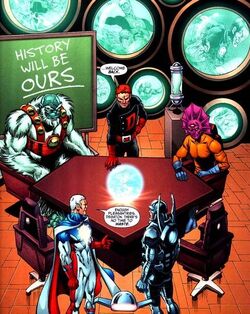Question for you: How do you organize a book?
 Sunday, February 21, 2010 at 9:33AM
Sunday, February 21, 2010 at 9:33AM 
I'd like to tap your experience to help with my in-process book, "Think, Try, Learn: A scientific method for discovering happiness" (working title). I've collected ideas for five years (since I started this consulting journey), and it's time to pull them together into a structure that leads to chapters.
A few examples I've found:
- Rico's "clustering" technique in Writing the Natural Way. There's a clustering example on Gabriele Rico website - which looks a lot like a mind map. Thoughts?
- I also found Ayn Rand's The Art of Nonfiction: A Guide for Writers and Readers.
- The LinkedIn answer If you plan to write a book, how you organize this work? suggests outlining until it's clear to everyone, analyzing 200 books on the subject (!), and resulting in a 50 page outline having 100 points per page. Fascinating. Another: 100s of 3x5 cards (I have this, basically)) -> lay them out -> gather into categories -> give categories chapter names -> transcribe cards into the computer -> re-work the material a half-dozen times. Also: Use an hierarchical style: start with as many levels as necessary -> try to get it down to 3 levels -> write the paragraphs.
- In How to write a book Peter Seibel suggests: Write the index -> Write a hierarchical outline -> Write a a flattened outline (linear, including splitting the taxonomy across chapters, and limited to three levels: chapters, sections, and paragraphs as topic sentences) -> Write the book.
I'm curious
- What ways do you know, or have used, to group ideas?
- Do you have resources around this that you'd like to share?
- What works have you applied your methods to?
Thanks a ton!

P.S. The tool I'm using to organize is decidedly low-tech: Post-It notes! I love sticky notes, and I'm sick of my text outliner, so I figured a change might help. Great results so far (my Edson experiment is at Use Post-it note techniques to organize book ideas), which supports my experience reported in How Else Can You See This? Perspective And The Value Of A Tool Change. Find a picture here, for fun:




